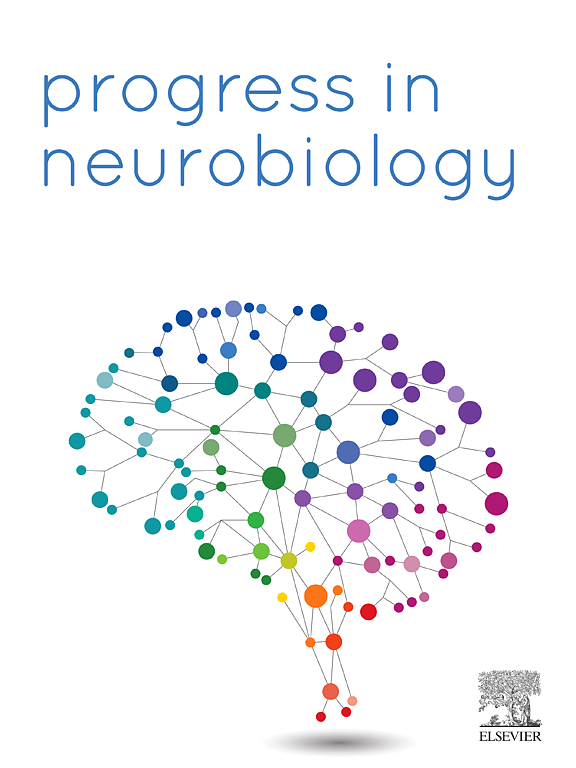自闭症谱系障碍遗传模型中运动技能缺陷的神经连接和分子机制
IF 6.1
2区 医学
Q1 NEUROSCIENCES
引用次数: 0
摘要
自闭症谱系障碍(ASDs)包括一大类神经发育障碍,包括重复性行为和社会互动困难。值得注意的是,asd患者甚至在其他核心症状出现之前就表现出了运动技能的显著损伤。这些技能对于日常活动至关重要,比如沟通、模仿和探索,对自闭症患者来说非常重要。本综述旨在通过描述与Fmr1、Chd8、Shank3、BTBR、16p11.2和Mecp2基因突变相关的运动技能学习障碍的病理机制,为理解运动技能障碍提供新的见解,主要来自于具有良好特征的遗传小鼠模型研究,并提出未来治疗干预的潜在目标。我们进一步讨论了与小脑和大脑内特定大脑区域发育相关的潜在致病性异常,以及关键神经元连接通路结构和功能的破坏。利用流行病学数据、临床观察和动物研究方法的进一步研究是有必要的,以增强我们对运动技能学习对儿童生长、发育和社会融合的影响的理解。最后,我们的综述提出了未来治疗干预的潜在目标。本文章由计算机程序翻译,如有差异,请以英文原文为准。
Neural connections and molecular mechanisms underlying motor skill deficits in genetic models of autism spectrum disorders
Autism spectrum disorders (ASDs) comprise a broad category of neurodevelopmental disorders that include repetitive behaviors and difficulties in social interactions. Notably, individuals with ASDs exhibit significant impairments in motor skills even prior to the manifestation of other core symptoms. These skills are crucial for daily activities, such as communication, imitation, and exploration, and hold significant importance for individuals with ASDs. This review seeks to offer new insights into the understanding of motor skill impairments by delineating the pathological mechanisms underlying motor skill learning impairments associated with gene mutations in Fmr1, Chd8, Shank3, BTBR, 16p11.2, and Mecp2, predominantly drawing from well-characterized genetic mouse model studies and proposing potential targets for future therapeutic interventions. We further discuss the underlying pathogenic abnormalities associated with the development of specific brain regions within the cerebellum and cerebrum, as well as disruptions in the structure and function of critical neuronal connectivity pathways. Additional research utilizing epidemiological data, clinical observations, and animal research methodologies is warranted to enhance our understanding of the effect of motor skill learning on the growth, development, and social integration of children. Ultimately, our review suggests potential targets for future therapeutic interventions.
求助全文
通过发布文献求助,成功后即可免费获取论文全文。
去求助
来源期刊

Progress in Neurobiology
医学-神经科学
CiteScore
12.80
自引率
1.50%
发文量
107
审稿时长
33 days
期刊介绍:
Progress in Neurobiology is an international journal that publishes groundbreaking original research, comprehensive review articles and opinion pieces written by leading researchers. The journal welcomes contributions from the broad field of neuroscience that apply neurophysiological, biochemical, pharmacological, molecular biological, anatomical, computational and behavioral analyses to problems of molecular, cellular, developmental, systems, and clinical neuroscience.
 求助内容:
求助内容: 应助结果提醒方式:
应助结果提醒方式:


